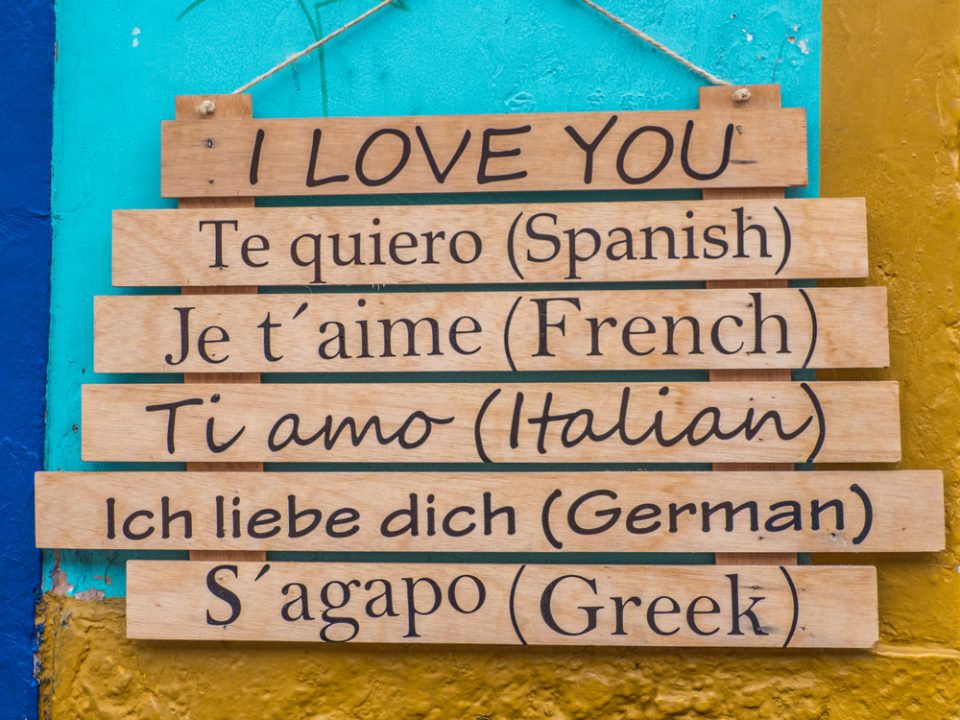
Love is a universal language that transcends borders, cultures, and time. It’s a feeling that has the power to connect people from all walks of life, and one of the most beautiful expressions of love is saying those three magical words: “I love you.” While those words are undoubtedly powerful in English, there’s something uniquely captivating about hearing them in a different language. Let us explore seven of the most beautiful ways to say “I love you” in various languages.
French – “Je t’aime”
When it comes to the language of love, French often takes center stage. The phrase “Je t’aime” is a classic declaration of affection, and it rolls off the tongue like a melody. The elegance and romance associated with the French language make “Je t’aime” a timeless and beautiful way to say “I love you.” Whether whispered softly in the ear or expressed with a grand gesture, this phrase never fails to evoke feelings of passion and devotion.
Italian – “Ti amo”
In Italy, where love and art intertwine seamlessly, the phrase “Ti amo” carries a profound sense of emotion. It’s a declaration that resonates with warmth and depth, echoing the passionate spirit of Italian culture. Italians are known for their heartfelt expressions of love, and “Ti amo” captures the essence of their affectionate nature. Whether spoken during a romantic dinner in Rome or under the Tuscan sun, these two words can make anyone’s heart skip a beat.
Spanish – “Te quiero”
Spanish, with its melodious cadence, has a beautiful way of expressing love through “Te quiero.” This phrase conveys not just romantic love but also affection for family and friends. It’s a versatile expression that encapsulates the warmth and closeness of Spanish-speaking communities worldwide. Whether it’s a whispered confession or a heartfelt declaration, “Te quiero” speaks to the enduring bonds that love creates.
Japanese – “Aishiteru”
In the land of cherry blossoms and poetic traditions, the Japanese language offers a profound way to express love with “Aishiteru.” This term is reserved for the deepest, most profound love and carries a sense of commitment and devotion that is truly beautiful. Saying “Aishiteru” is like unveiling your soul, and it’s a testament to the enduring love that transcends the ordinary.
Arabic – “Ana behibek”
Arabic, a language known for its lyrical beauty, offers the phrase “Ana behibek” as a powerful expression of love. It’s a declaration that carries the weight of deep emotion and sincerity. With its intricate calligraphy and poetic resonance, “Ana behibek” captures the essence of love in the Arab world, where love is celebrated as a divine gift.
Swahili – “Nakupenda”
In the heart of East Africa, the Swahili language is a testament to the region’s cultural diversity. “Nakupenda” is a Swahili expression of love that carries a sense of tenderness and simplicity. It’s a reminder that love transcends language barriers and speaks to the universal desire for connection. Whether exchanged on the shores of Zanzibar or in the bustling streets of Nairobi, “Nakupenda” is a beautiful way to convey affection.
Tagalog – “Mahal kita”
Finally, we arrive in the Philippines, a country known for its warm hospitality and vibrant culture. In Tagalog, the primary language of the Philippines, “Mahal kita” is the phrase that captures the essence of love. These words resonate with sincerity and deep affection, reflecting the Filipino people’s warm-hearted nature. Whether you’re expressing your love to a partner, a friend, or a family member, “Mahal kita” embodies the spirit of love that is cherished in the Philippines.
Love is a force that unites us all, transcending borders and languages. The beauty of expressing love in different languages lies not just in the words themselves but in the rich tapestry of culture, history, and emotion they represent. From the romantic allure of French to the profound commitment of Japanese, each language offers a unique and beautiful way to say “I love you.”
So, the next time you want to express your affection or devotion, consider saying “I love you” in a different language. It’s not just a gesture; it’s an exploration of the diverse and beautiful ways we connect with one another, reminding us that love truly knows no bounds. Whether it’s “Je t’aime,” “Ti amo,” “Te quiero,” “Aishiteru,” “Ana behibek,” “Nakupenda,” or “Mahal kita,” let your heart speak in the language that resonates with your deepest emotions, and watch as love blossoms in all its beauty.
This story was created using AI technology.
















